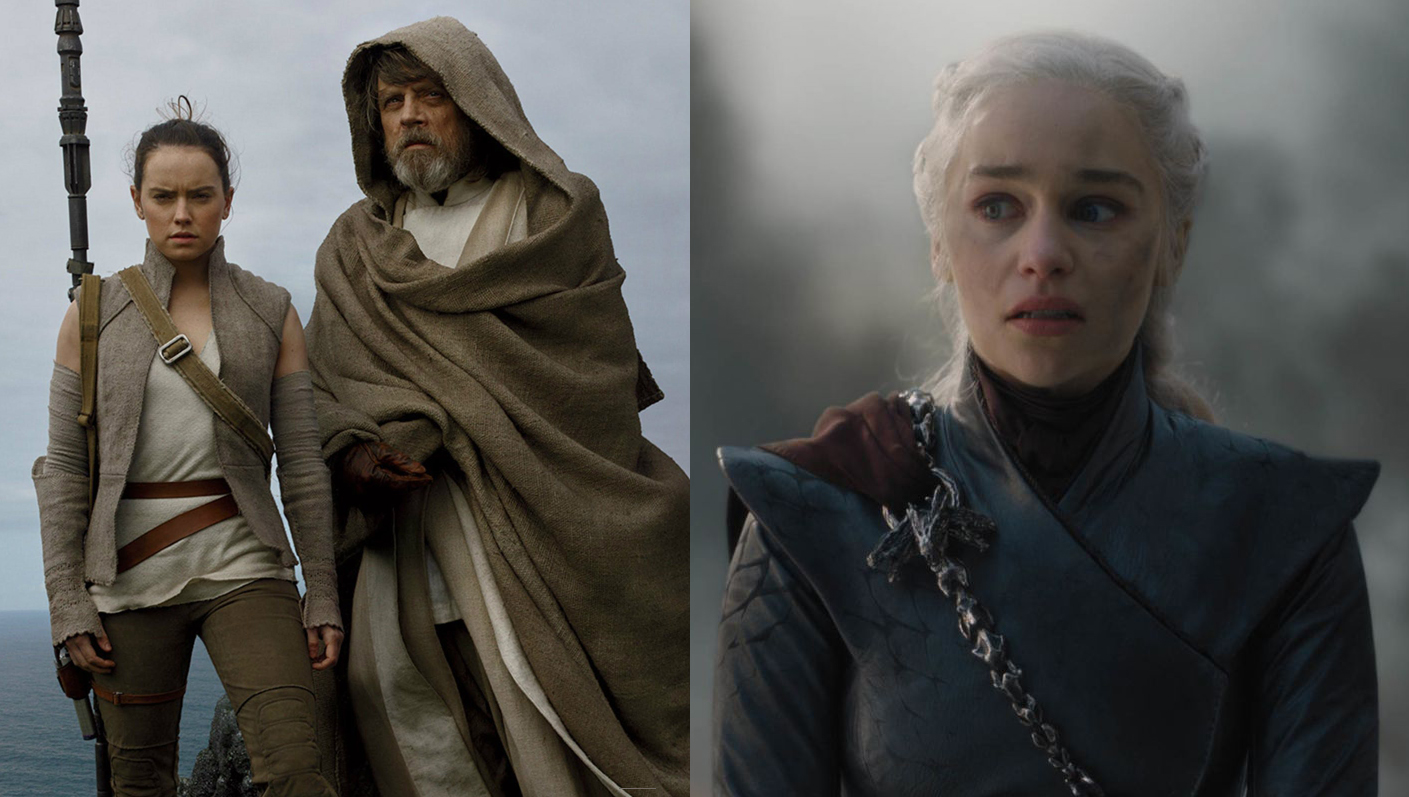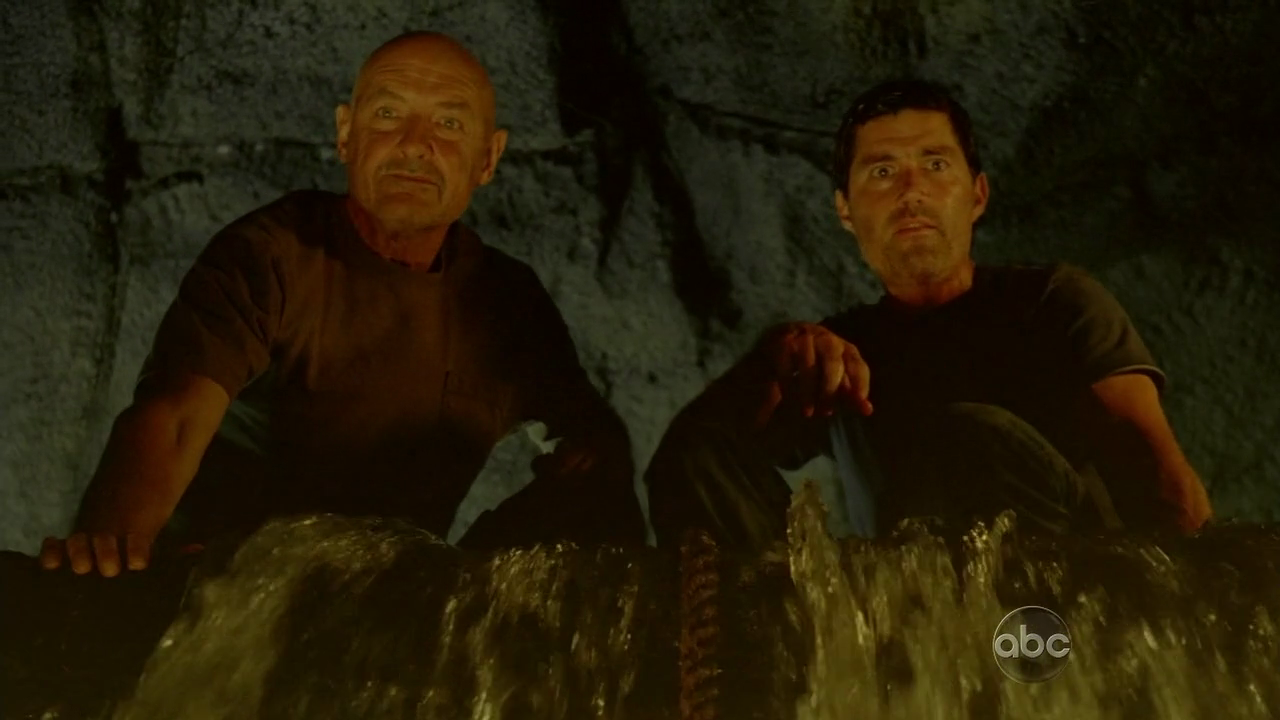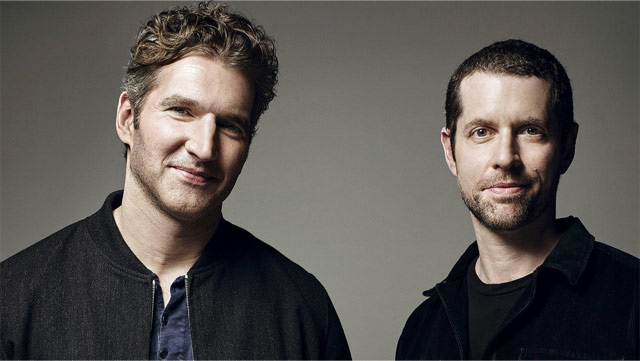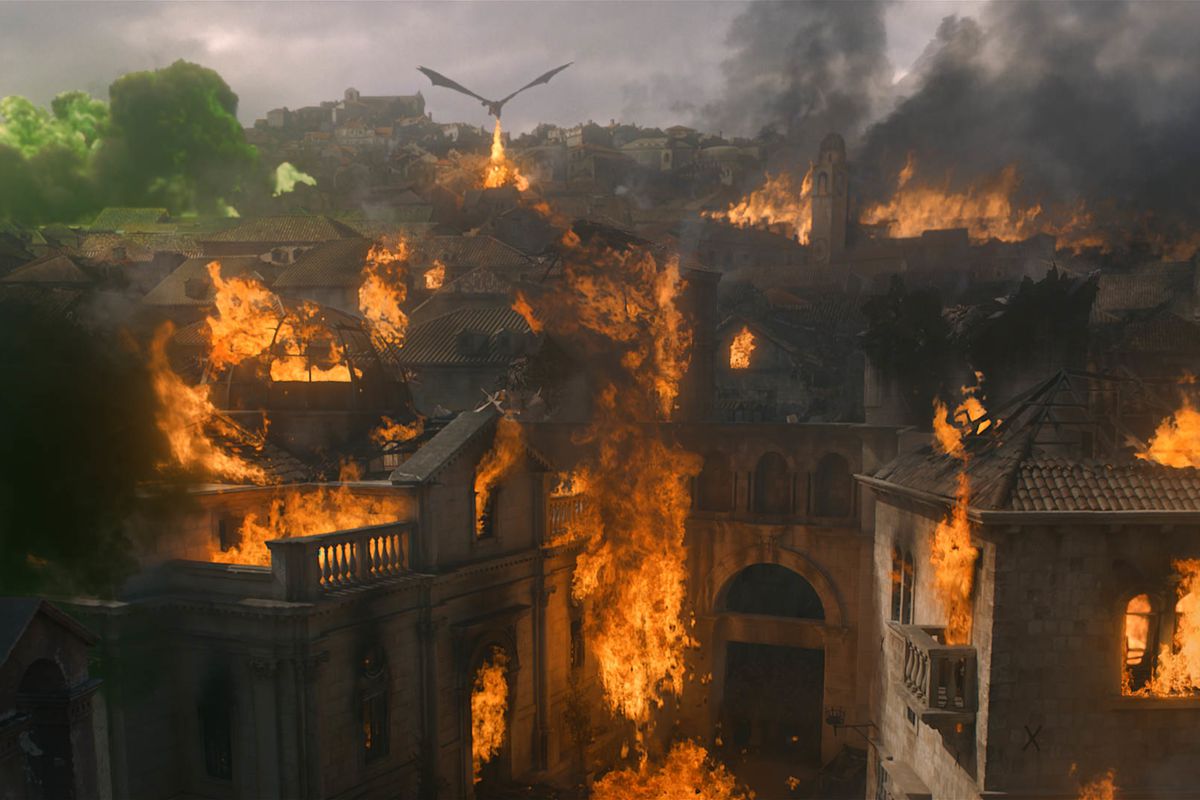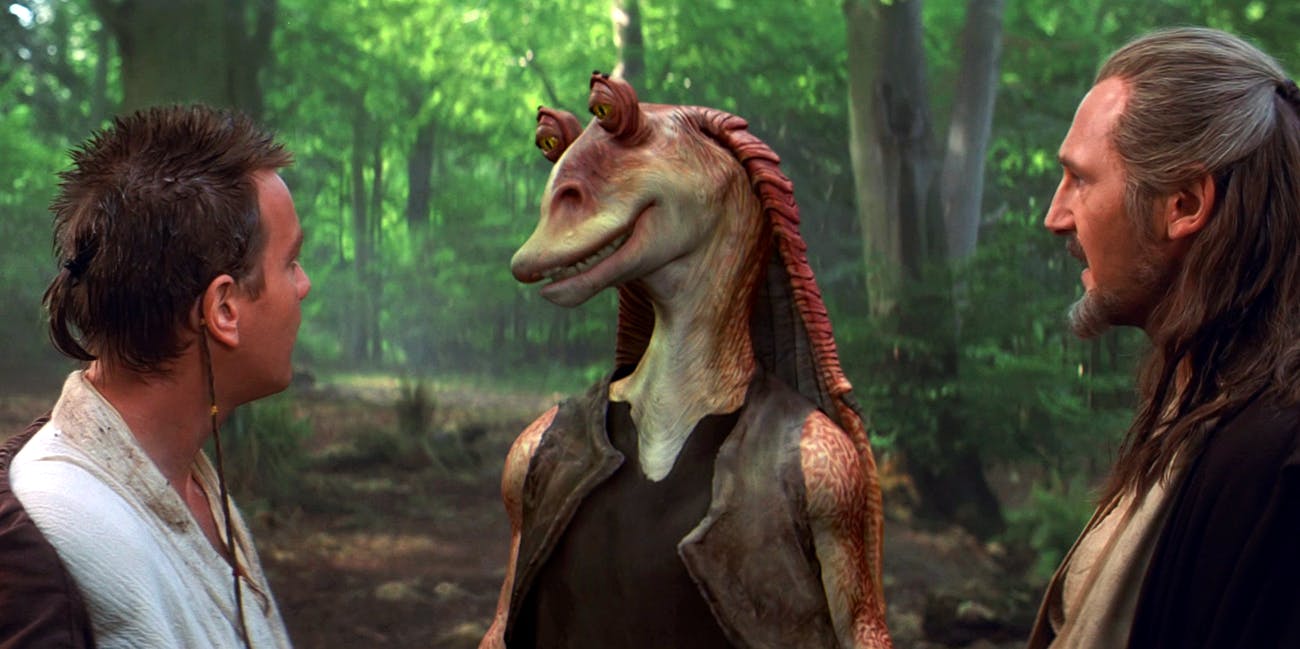[SPOILER WARNING: this article contains discussions of plot points from the current season of Game of Thrones and Star Wars: The Last Jedi]
You can’t please everyone, but everyone wants to be pleased. That’s the underlying conundrum inherent in being a content creator, and it’s nothing new. The inescapable truth is that, pretty much since mass culture first became a thing, fans have tended to claim ownership of the media they consume, and that perceived ownership can cause those fans to become extremely protective over the properties they love.
Before I get into the related controversy of the day, I’ll give you an example from my own relationship with pop culture: I was (and still am) a huge fan of ABC’s hit sci-fi drama Lost, about a diverse group of people stranded on a mysterious island after an unexplained plane crash. Like many other fans, by the time the final season of that show aired I had formulated my own ideal way of how the story should end. And when it didn’t end that way, I became a bit disillusioned, ultimately kind of disowning the last batch of episodes. I never bought season six on Blu-ray and whenever I recommend the series to someone it always comes with a caveat.
But is the final season of Lost bad because it wasn’t what I wanted it to be? It will be difficult for me to ever know, because I had so much invested in that ending that I can’t separate myself from it. I can see how that probably isn’t fair to the show’s talented showrunners Damon Lindelof and Carlton Cuse, who unfortunately suffered a lot of abuse on social media after the series finale aired. And though I would never hurl insults at creatives online because I didn’t like a particular piece of media, I still feel the way I felt back then about Lost season six. That’s why I can sort of empathize with everyone who is angry about Game of Thrones right now.
This morning during a company earnings call, Disney CEO Bob Iger chose the most hilariously ill-timed week possible to announce that the next Star Wars movie to be released after this December’s Episode IX: The Rise of Skywalker would be from Game of Thrones showrunners David Benioff and D.B. Weiss. Coming off of the pay-cable series’ intensely divisive penultimate episode “The Bells,” that creative partnership is the target of an inordinate amount of ire on Twitter, and Iger’s seemingly oblivious reveal today has only served to further aggravate the situation.
Of course, we’ve known Benioff and Weiss have been developing a Star Wars trilogy of their own for some time, but that initial announcement came back when the pair was still mostly in the public’s good graces, before they pulled the rug out from a large contingent of Game of Thrones fans by having Daenerys Targaryen go all “Mad Queen” and burn King’s Landing to the ground (innocent civilians included) via her dragon Drogon. It’s a move that about half of the show’s fanbase claims to have seen coming, and half feels betrayed by even more than Tyrion and Jon Snow feel forsaken by the Khaleesi herself.
I consider myself a casual fan of Game of Thrones. Years ago I read the first three books in George R.R. Martin’s lauded A Song of Ice and Fire fantasy novel series, and I’ve kept up with the immensely popular HBO series they spawned through to this week’s episode, and I’ll follow through by watching the finale next weekend. I enjoy the world of Westeros, its many well-rounded characters, and especially the mood and tone set by a fantasy tale set in a universe that doesn’t behave by more traditional fantasy rules– the good guys don’t always win, and the good guys aren’t always, well… good guys.
For that reason, Daenerys’ heel turn feels appropriate to the seventy-plus hours of television that preceded it, and in my estimation is probably one of the only satisfying ways Benioff and Weiss (under Martin’s tutelage) could have set up the single remaining episode. I personally would have been disappointed if the arc of the series had seen the Mother of Dragons rise to power, claim the Iron Throne and stay there, beloved and unchallenged. But that’s coming from someone who is only moderately invested in Game of Thrones and doesn’t have a lot riding on Daenerys as a role model.
Is it possible that David Benioff and D.B. Weiss have “ruined” Game of Thrones after being such a central, integral part of what made the series great in the first place? After all, the two pulled off the seemingly impossible in adapting Martin’s epic narrative to the small screen in the first place. The idea that fans are blaming them for the recent stuff they hate without also crediting them for the early stuff they love seemed absurd to me until I started thinking about George Lucas and my reaction to the Star Wars prequel trilogy two decades ago.
I have no doubt that I said on more than one occasion after Episodes I, II, and III of the space saga hit theaters, that Lucas ruined Star Wars. And while I still don’t hold the prequels in the highest regard when it comes to my overall ranking of the franchise to which I am most attached, in the twenty years since they began to be released I have witnessed another generation grow up and appreciate those movies for what they are, and I would never do anything to deny those fans that enjoyment.
A year and a half ago, a good chunk of the Star Wars fanbase got very upset (again) when writer/director Rian Johnson delivered The Last Jedi to audiences. He didn’t treat the character of Luke Skywalker the way they wanted him to, in their estimation the question of Rey’s parentage wasn’t dealt with satisfactorily, they said Snoke was dispatched too easily and wasn’t given enough of a backstory. And though I mostly enjoyed the movie myself, I’ll readily admit that I wished Johnson had toned down the humor in the film a bit and given Finn and Rose a better side quest, but that’s all beside the point. The bottom line is that– because the Brick filmmaker was chosen by Lucasfilm president Kathleen Kennedy, who was hand-selected by Lucas to replace him as head of the company– Episode VIII was Rian’s story to tell, not ours.
My takeaway from four decades of experience being a fan and from this morning’s announcement is this: Benioff and Weiss are in good company among Star Wars creators because they don’t always make everyone happy. That’s been undeniably true of George Lucas, Rian Johnson, J.J. Abrams, Richard Marquand, even Lawrence Kasdan, Leigh Brackett, and Irvin Kershner. Yes, The Empire Strikes Back had its share of detractors after its release in 1980 as well. The fact is there are going to be things you and I and plenty of other people won’t like about the next installment from A Galaxy Far, Far Away. And the great thing about unending franchises like Star Wars and Game of Thrones is that if you don’t like a particular episode, all you ever really have to do is wait for the next one.

